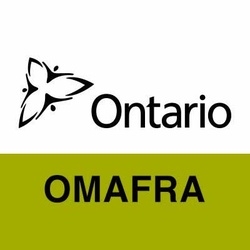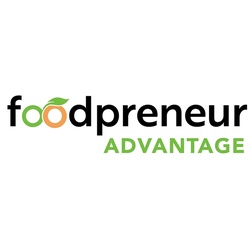
Labour Force Management Strategies Initiative (LFMSI)
At a glance
- Maximum amount : 100,000 $
- Up to 50% of project cost
- Open Date : October 22, 2024
- Closing date : September 2, 2025
- Agriculture, forestry, fishing and hunting
- Manufacturing
- Ontario
- Non-profit
- Public or Parapublic institution
- For-profit business
- Sole proprietorship
- All revenue ranges
- All organization sizes
- Canadians
- Economic, Social and Community Development
- Employment and Training
- Business Associations
- Rural / Remote communities
- Business owners / entrepreneurs
- All structures
- Provincial
Overview
The Labour Force Management Strategies Initiative provides funding up to a maximum of $40,000 for primary producers and processors, and up to $100,000 for industry organizations or collaborations, to address local labour force challenges in the agri-food sector. Eligible activities include piloting recruitment and retention strategies, and developing human resource policies and programs.
Activities funded
The Labour Force Management Strategies Initiative aims to help primary producers and processors in the agri-food sector tackle local labour force challenges. Eligible projects focus on testing and developing strategies that improve attracting, recruiting, and retaining employees in the sector.
- Piloting incremental worker supports like local or regional transportation services, licensed dependent care, language translations, and training initiatives.
- Executing incremental recruitment strategies such as marketing campaigns and job fairs.
- Creating new or incremental human resource policies and programs addressing recruitment and retention challenges.
- Planning on-site employee amenities like multi-faith worship spaces, recreational facilities, and dependent care facilities.
Eligibility
Eligibility for this grant is determined by specific criteria related to the applicant's profile and compliance with relevant laws.
- The applicant must be a Primary Producer, Processor, or Industry Organization.
- The applicant must submit a completed Ministry-approved Application Form.
- The applicant must be involved in activities that address attraction, recruitment, and/or retention of employees as set out in the guidelines.
- If applying as a Primary Producer or Processor, the applicant must have a valid and up-to-date Premises ID Number.
- If applying as a Primary Producer, the applicant must have a valid FBRN or equivalent exemption documentation.
- The applicant must be in compliance with environmental, labour, tax-related, and other relevant laws.
- The applicant and its officers cannot be current or former federal public office holders or federal public servants in conflict with relevant Canadian acts and codes.
- The applicant must agree that intellectual property rights arising from the project belong to them.
- The applicant must agree to the publication of information about their project by Canada and Ontario.
- The applicant must agree to the terms and conditions of the Initiative as specified in the relevant documents.
- The applicant must participate in knowledge sharing, including project outcomes.
Who is eligible?
This grant is specifically available to entities involved in the agri-food sector, focusing on addressing labour force challenges through innovative strategies. Eligible applicants must meet the following criteria:- Be a primary producer, processor, or an industry organization.- Operate within activities that include piloting incremental worker supports, recruitment strategies, developing new or incremental human resource policies and programs, or planning for on-site amenities for employees.- Must operate within or focus their project efforts on Ontario-based labour strategies in the agri-food sector.
Who is not eligible
The Labour Force Management Strategies Initiative primarily supports specific sectors within the agri-food industry, excluding certain companies and industries due to their status or activities. This ensures that the funding is appropriately targeted.
- Companies that are not primary producers, processors, or industry organizations in the agri-food sector.
- Applications from entities that have already received funding for the same project through the Sustainable Canadian Agricultural Partnership.
- Companies or industries not involved in innovative workforce attraction, recruitment, or retention strategies within the agri-food sector.
- Businesses without a valid CRA BN, SIN, or Premises ID number where applicable.
- Entities that are not in compliance with legal and regulatory requirements, such as environmental, labor, or tax-related laws.
- Organizations involved in ordinary business operations or in activities not directly supporting employee attraction, recruitment, or retention.
- Projects involving living accommodations or the construction and renovation of on-site amenities.
- Entities not identified by the specified NAICS codes related to the agri-food industry.
- Organizations that are abusive towards ministry staff or submit false or misleading information.
- Participants with outstanding debts to Ontario or Canada without a repayment plan.
Eligible expenses
The grant covers specific expenses directly related to the implementation of eligible pilot projects that address local labour force challenges in the agri-food sector.
- Costs incurred after application approval but before February 28, 2026.
- Purchase of goods and supplies necessary for project implementation (e.g., training materials, promotional materials).
- Third-party service provider costs, including licensed dependent care, translation services, human resource programs and policy development, and media or promotion services.
- Venue and facility rental fees for project events such as career fairs.
- Travel costs for employees to attend project-related events in Ontario, up to a maximum of $5,000.
- Local or regional transportation support costs for employees, with specific expenses such as shuttle services, public transportation fares, taxi or rideshare costs, and vehicle rentals (excluding luxury vehicles), up to specified limits.
Eligible geographic areas
While the grant's documentation does not explicitly specify eligible geographical areas, the Labour Force Management Strategies Initiative is administered by the province of Ontario. Considering the context, Ontario-based entities might be a primary focus for eligibility.
Selection criteria
The evaluation and selection of projects for this grant consider how well the projects meet the strategic goals of addressing local labour force challenges in the agri-food sector, based on clearly defined criteria.
- Alignment of intended project outcomes, including identifying a need and demonstrating a rationale for the project.
- Extent to which the project will effectively address labour force attraction, retention, or recruitment.
- Strength of contributions from additional primary producers and/or processors for collaborations.
- Benefits to the sector, including potential for broader impact or sector-wide benefits through knowledge sharing upon completion of the project.
- Strength of the plan to collect information and knowledge regarding project outcomes and the potential for knowledge sharing with the sector.
- Likelihood of success, including adequacy of resources, experience, and skills to successfully complete the project.
- Clearly articulated budget with reasonable costs necessary for project implementation, aligned with eligible costs.
- Detailed work plan outlining project activities and demonstrating capacity to achieve these activities within project timelines.
How to apply
Review Guidelines
Download Forms
Complete Forms
- Fill out the application form with detailed information about your project, ensuring all fields are completed.
- If applicable, fill out the collaboration form to outline contributions from collaborating businesses.
Gather Documents
Submit Application
- Email the completed application form, collaboration form, and supporting documents to SustainableCAP2@ontario.ca.
- Ensure submission is before the deadline of September 2, 2025, 11:59 p.m. ET, or when funding is fully committed.
Confirmation
Additional information
Here are additional relevant details for this grant:
- The funding cannot exceed 50% of eligible costs. For primary producers and processors, the cap is $40,000, while industry organizations or collaborations can receive up to $100,000.
- The initiative has a total budget of $4 million, funded by the Sustainable CAP (2023-2028).
- Applicants can submit up to 2 applications simultaneously, with a total of 2 approved projects.
- Projects must be completed by February 28, 2026.
- The initiative emphasizes knowledge sharing, requiring recipients to report project outcomes and lessons learned.
- Stacking of grants is allowed, provided the total assistance does not exceed 100% of eligible costs.
- Strict compliance with environmental, labor, and tax laws is required for eligibility.
- Applicants need to provide a Premises ID Number and may need a Farming Business Registration Number (FBRN) or equivalent identification.
- Initiative Payments may be audited, thus record-keeping for 7 years is recommended.
- There are restrictions on communications requiring prior written consent from the Ministry, including adherence to a communications protocol.
- The application form must be completed using Adobe Acrobat Reader, and the submission process includes a detailed review and potential debrief for non-approved applicants.
- The guideline document prevails in cases of any conflict or discrepancy.
- Recognition is given for indigenous persons, women, and youth, although providing this demographic information is voluntary.
Contacts
Frequently Asked Questions about the Labour Force Management Strategies Initiative (LFMSI) Program
What is the Labour Force Management Strategies Initiative (LFMSI)?
How much funding can be received?
What is the deadline to apply?
Who is eligible for the Labour Force Management Strategies Initiative (LFMSI) program?
What expenses are eligible under Labour Force Management Strategies Initiative (LFMSI)?
Who can I contact for more information about the Labour Force Management Strategies Initiative (LFMSI)?
Where is the Labour Force Management Strategies Initiative (LFMSI) available?
More programs like this

Expanded Energy Management Program
Independent Electricity System Operator (IESO)
REGI — Business Scale-up and Productivity (BSP) - Northern Ontario
Government of Canada
Ontario Food Exports — Services for Exporters
Government of Ontario
FedNor — Regional Tariff Response Initiative
Federal Economic Development Agency for Northern Ontario (FedNor)
Regional Artificial Intelligence Initiative (RAII) for Northern Ontario
Federal Economic Development Agency for Northern Ontario (FedNor)
INVEST North Program — Investment — Grow Stream
Government of Ontario
Grains Innovation Fund
Grain Farmers of Ontario (GFO)
Regional Tariff Response Initiative (RTRI) — Northern Ontario
Federal Economic Development Agency for Northern Ontario (FedNor)
Food Safety and Growth Initiative
Sustainable Canadian Agricultural Partnership (SCAP)